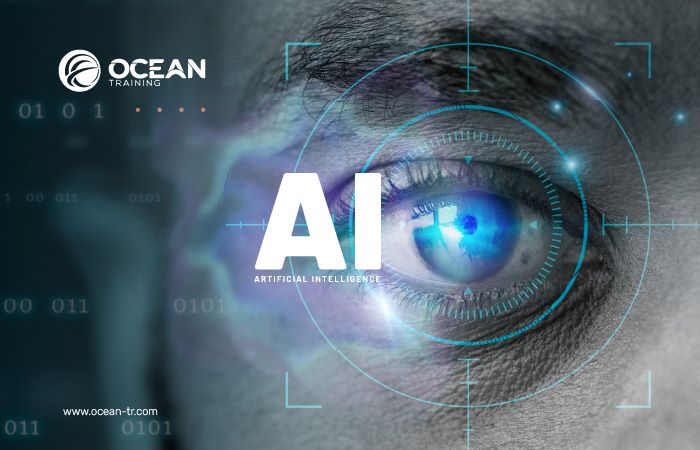
Artificial intelligence
Introduction:
Artificial intelligence (AI) refers to the ability of machines or computer systems to perform tasks that typically require human-like intelligence, such as learning, reasoning, problem solving, perception, and decision-making.
AI systems are designed to process and analyze large amounts of data, recognize patterns, and make predictions or decisions based on that data. They can be programmed to learn from experience and improve their performance over time without explicit instructions.
Artificial intelligence can be classified into two main categories: narrow, or weak, artificial intelligence and general, or strong, artificial intelligence. The narrow term AI refers to systems designed to perform specific tasks, such as image or speech recognition, language translation, or game playing. On the other hand, artificial general intelligence refers to systems that have human-like intelligence and can perform a wide range of tasks across different domains.
AI has many applications in various industries and sectors, including healthcare, finance, transportation, education, and entertainment. Examples of AI-based technologies include chatbots, self-driving cars, recommendation systems, fraud detection algorithms, and personal digital assistants like Siri and Alexa.
The Artificial Intelligence program that we offer at Ocean Training and Development Academy introduces you to more about this field.
Types of artificial intelligence:
Artificial intelligence (AI) can be classified into different types based on its level of intelligence, functions, and performance. Here are some well-known types of artificial intelligence:
Reactive AI: Reactive AI is the basic type of AI that reacts to a given situation based on available data. He has no memory or ability to learn from past experiences. Examples include chess-playing programs and facial recognition systems.
Limited Memory Artificial Intelligence: Limited Memory Artificial Intelligence has the ability to store and retrieve past experiences to make informed decisions. It can learn from data and improve its performance over time. Examples include self-driving cars and personal assistants such as Siri and Alexa.
Theory of Mind AI: Theory of Mind AI refers to the ability of machines to understand the emotions, beliefs, and intentions of humans. It can predict how humans will react to a given situation and adjust its behavior accordingly. This type of artificial intelligence is still in its early stages of development.
Self-aware AI: Self-aware AI is a theoretical concept that refers to machines that have consciousness and the ability to think and reason like humans. This type of artificial intelligence is still in the realm of science fiction and has not yet been achieved.
Artificial General Intelligence (AGI): AGI is an advanced form of artificial intelligence that has human-like intelligence and can perform a wide range of tasks across different domains. It is still a theoretical concept and has not yet been realized.
Artificial Super intelligence (ASI): ASI refers to machines that exceed human intelligence and can solve complex problems that humans cannot solve. This is also a theoretical concept and has not yet been realized.
Uses of artificial intelligence:
Artificial intelligence (ai) has many applications in various industries and sectors. Here are some examples of how AI can be used:
Healthcare: AI is being used to analyze medical images, detect diseases, and develop personalized treatment plans. It is also used to develop virtual nursing assistants and chatbots to improve patient care and experience.
Finance: Artificial intelligence is used to detect fraud, automate financial processes, and develop investment strategies. It is also used to develop chatbots and virtual assistants to improve customer service.
Transportation: AI is being used to develop self-driving cars, improve traffic flow, and improve logistics and supply chain management.
Education: AI is being used to personalize learning experiences, develop intelligent teaching systems, and automate administrative tasks.
Entertainment: AI is used to develop personalized recommendations for movies, TV shows, and music. It is also used to develop video games with intelligent non-playable characters.
Marketing: AI is used to develop personalized marketing campaigns, analyze consumer behavior, and improve customer engagement.
Manufacturing: AI is being used to improve production processes, predict equipment failure, and improve quality control.
Agriculture: AI is being used to develop precision farming techniques, improve crop yields, and monitor soil and plant health.
These are just a few examples of how AI is being used in different industries and sectors. As AI technology advances, we can expect to see more innovative applications in the future.
The importance of artificial intelligence:
Artificial intelligence (ai) has become increasingly important in today’s world due to its ability to automate complex tasks, analyze large amounts of data, and make predictions based on that data. Here are some of the main reasons why AI is important:
Increased efficiency: AI can make routine and repetitive tasks more professional and easier, allowing humans to focus on more complex and creative work. This can lead to increased productivity and efficiency in many industries.
Improved accuracy: AI can process large amounts of data and make accurate predictions based on that data. This can improve decision-making processes in many areas, including healthcare, finance, and manufacturing.
Enhanced personalization: AI can analyze individual data and preferences to develop personalized recommendations and experiences for users. This can improve customer satisfaction and engagement in industries such as marketing and entertainment.
Better resource management: AI can improve resource allocation and utilization, leading to cost savings and improved sustainability in industries such as transportation and agriculture.
Advances in science and research: AI can analyze complex data sets and simulate scenarios that are difficult or impossible for humans to perform, leading to advances in fields such as medicine and environmental science.
Improved safety: AI can automate dangerous tasks, reducing the risk of accidents and injuries in industries such as construction and manufacturing.
In general, the importance of artificial intelligence lies in its ability to change the way we work, live and interact with the world around us. As AI technology continues to advance, we can expect to see more innovative applications that benefit individuals, businesses, and society as a whole.
()
